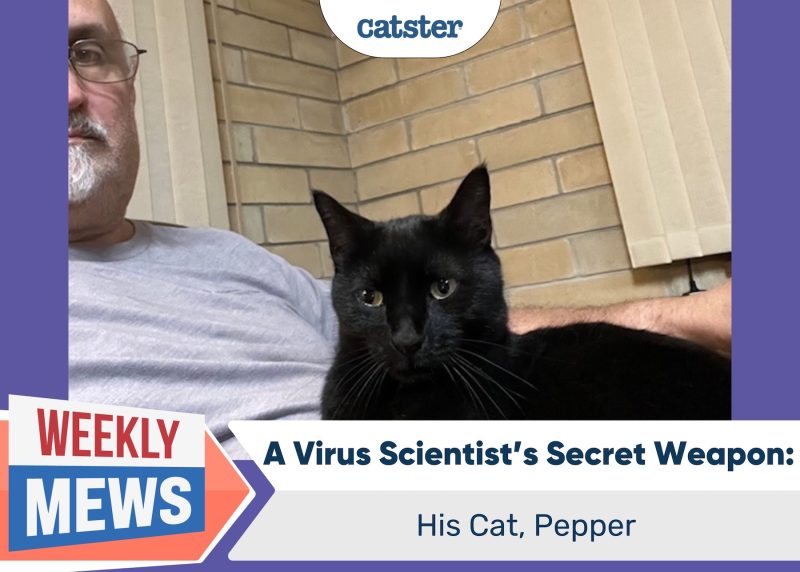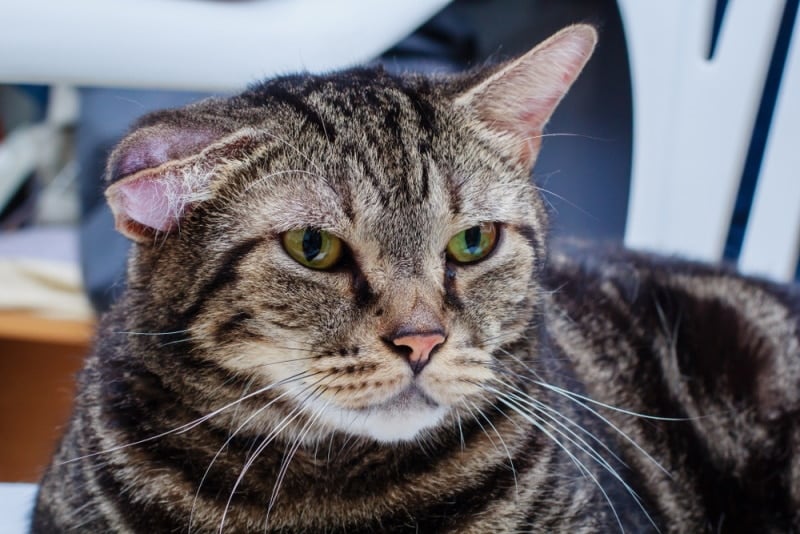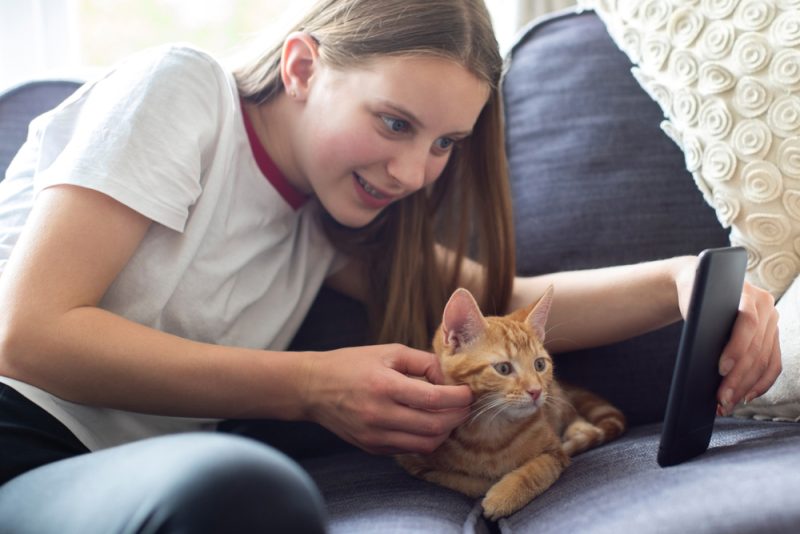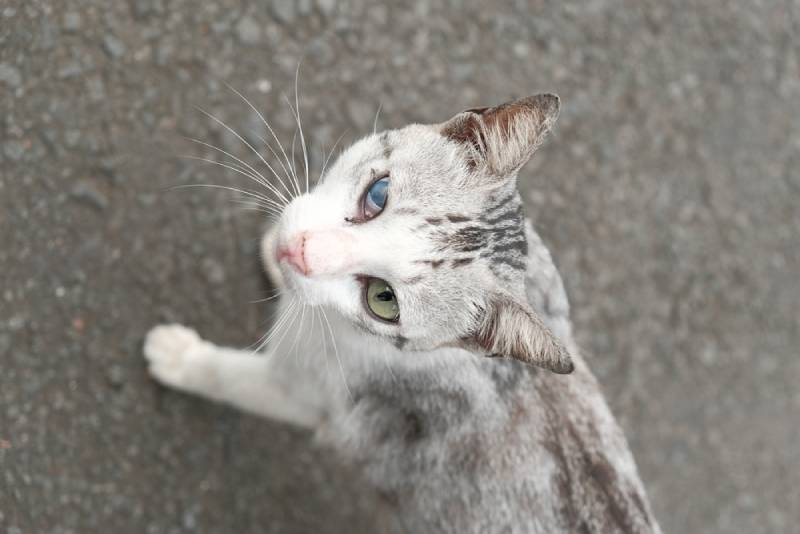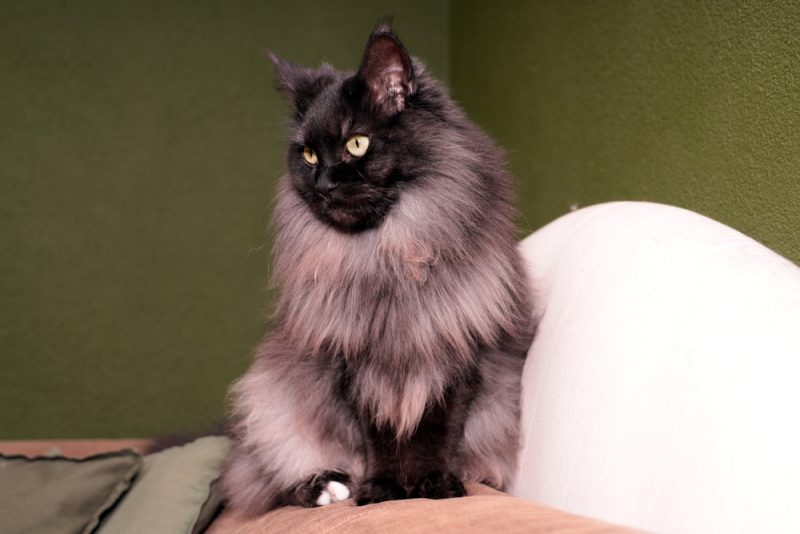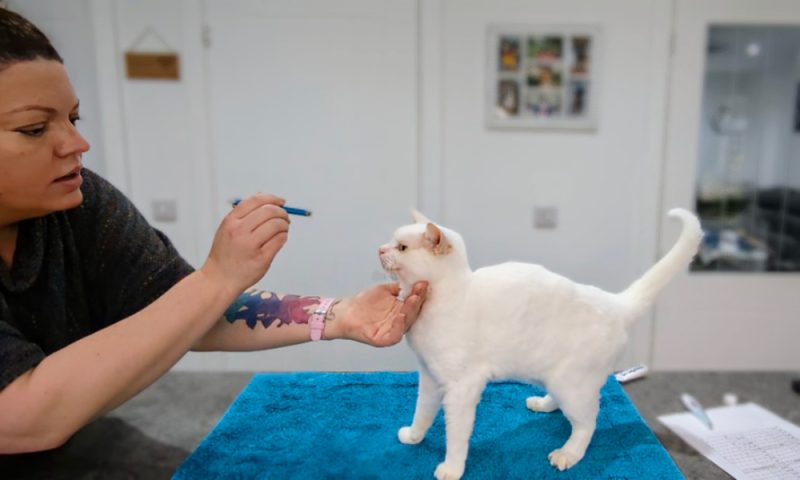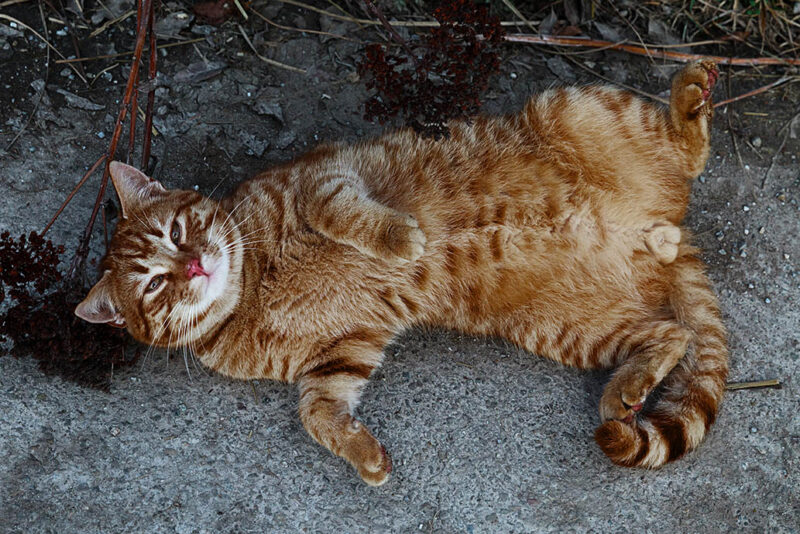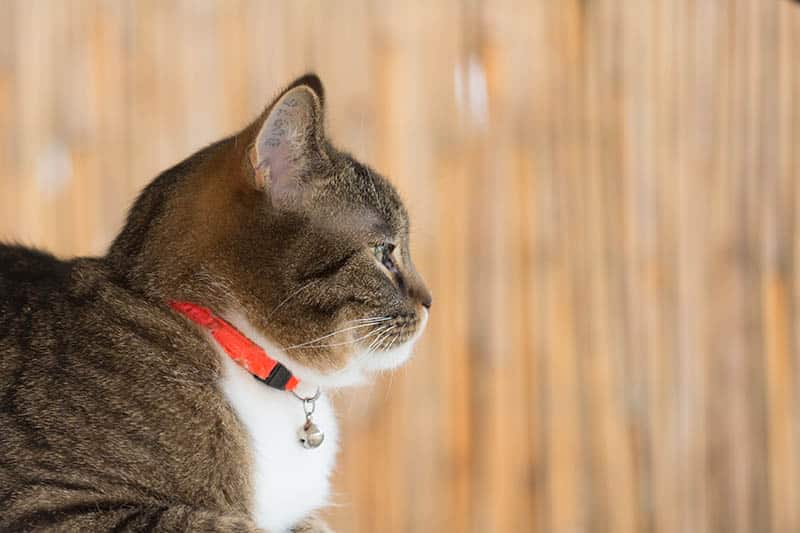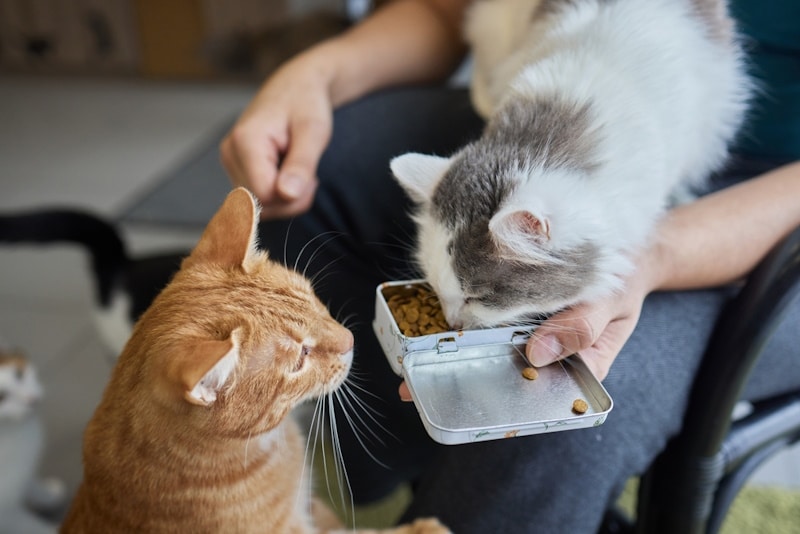A Florida virus researcher has an incredibly effective new research assistant: his cat, a black domestic shorthair named Pepper! Pepper’s penchant for hunting (and gifting) provided her owner with the perfect test subject for viruses in the local wildlife.
Here’s the incredible story of how Pepper the housecat-slash-virologist helped her owner, John Lednicky, Ph.D., discover not one but two new viruses. Pepper has even recently taken on a trainee…
Pepper Discovers Her First Virus
Pepper the cat enjoys hunting and bringing her owner dead rodents as gifts. But unlike most cat owners who have enjoyed (or not) this classic cat love language, Pepper’s owner is a virologist at the University of Florida’s College of Public Health and Health Professions. So when life gave him a dead mouse, he decided to test it for viruses! Scientists call this an “opportunistic study,” as opposed to a planned study where they might intentionally seek out the mice to test.
Lednicky was expecting to find a virus called deer mulepox because his team wanted to know if rodents could carry it. Instead, the tests showed a new type of jeilongvirus. Jeilongviruses are part of the family Paramyxoviridae, which includes better-known viruses that cause measles and mumps. They’re common in bats, rodents, and cats.
According to their paper, published in 2024, the new virus is called Gainesville rodent jeilong virus 1 (GRJV1). This is the first time it has been detected in the US, and based on their early research, it does pose a “spillover risk,” meaning it could jump between species.
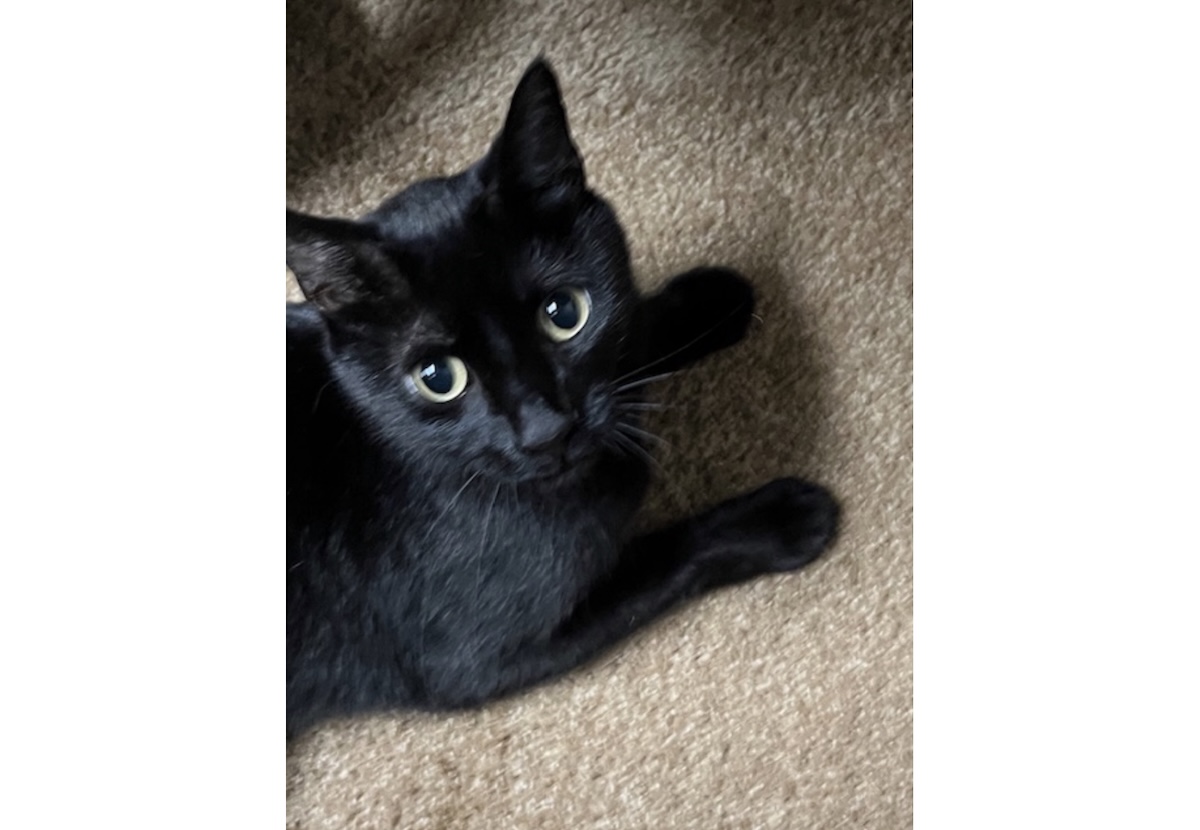
Virus Hunting: Round Two
But wait! Pepper wasn’t satisfied with just discovering one new virus. This year, she brought home a dead Everglades short-tailed shrew, which Lednicky dutifully tested.
This time, the shrew showed a new strain of orthoreovirus, which the team named Gainesville shrew mammalian orthoreovirus type 3 strain UF-1. Ortheoviruses are found in the feces of mammals, reptiles, and birds, and may be connected to mild upper respiratory illness and gastroenteritis.
Why Do Scientists Study These Viruses?
Wild animals don’t receive the kind of vaccination, deworming, and general healthcare that our pets do, so they can carry a range of diseases that can pose a public health risk, both to our pets and to us. Scientists are interested in the viruses (as well as bacteria and parasites) circulating in wildlife populations because they can jump between species, and some may even cause disease in humans. For example, rabies, bubonic plague, Ebola, and West Nile virus are all zoonotic, meaning they jump from animals to humans. Detecting new viruses early can help scientists and doctors respond quickly to potential outbreaks.
Time for a Trainee

What does that mean for Pepper? Her job as a discoverer of viruses is pretty important. Since hunting, lounging, and discovering new viruses is quite a workload, Pepper has taken on a trainee. Her apprentice, named Jaha, is quickly learning the art of virus hunting. It helps to have such an expert teacher!
We wish them well with their important work! Who knows what these working cats will discover next…
More From Weekly Mews:
- How Geriatric Felines Are Helping to Unlock the Mysteries of Alzheimer’s Disease
- Next-Level Cat Pampering: The Two-Year DIY Feline Subway Station
- Raise Your Paws – One More State Bans Declawing
- Miracle Cat Survives Five-Storey Fall
Images courtesy of John Lednicky
Did You Know?
- Our breaking news articles are featured in our weekly emails. Don’t miss out on the latest and sign up for our newsletter below!
